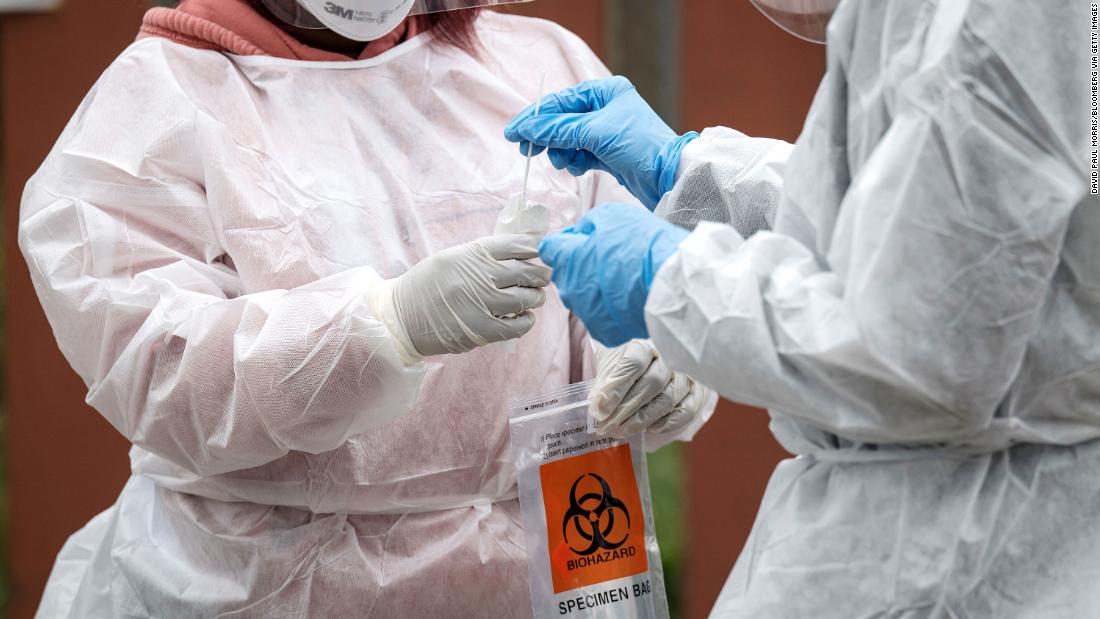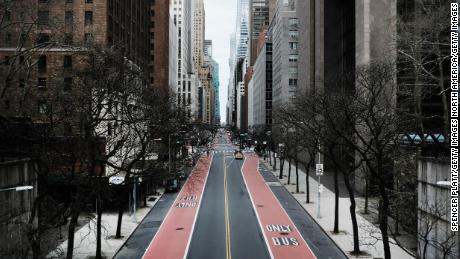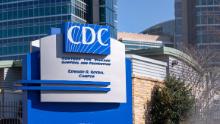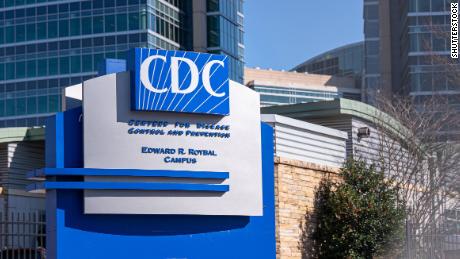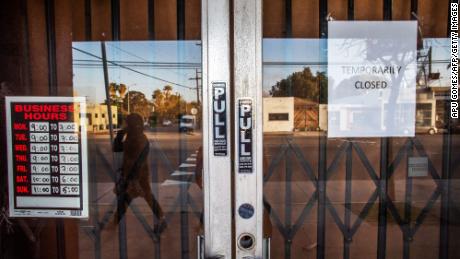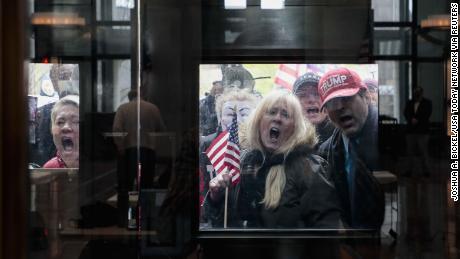Researchers say coronavirus testing must go up by at least 500,000 per day before the country can reopen
Testing nationwide is currently at 150,000 per day, they said, adding that “If we can’t be doing at least 500,000 tests a day by May 1, it is hard to see any way we can remain open.”
Though some officials have warned against it, several states are looking to reopen as soon as possible. Protesters showed up in the capitals of Indiana, Maryland, New Hampshire and Texas this weekend to decry their states’ stay-at-home orders.
The research on the testing shortfall was done by Dr. Ashish Jha, faculty director of the Harvard Global Health Institute, Dr. Thomas Tsai, researcher at the Harvard T.H. Chan School of Public Health, and Benjamin Jacobson, research assistant at the Harvard Global Health Institute.
The number of positive tests must also be much lower, the researchers said. In the US, 20% of those tested for coronavirus get positive results. The World Health Organization has said that to reopen, that number should be between 3% to 12%.
In a three-part guideline released last week, the White House said states can enter the first phase toward reopening once they see a continued decrease over two weeks.
Governors want testing capacities bolstered
President Donald Trump and Vice President Mike Pence say there is ample testing capacity for states to begin the first phase.
But Gov. Ralph Northam of Maryland called the assertion “delusional” and said his state doesn’t even have sufficient swabs to conduct testing.
Ohio Gov. Mike DeWine and Michigan Gov. Gretchen Whitmer told NBC’s “Meet the Press” they also have concerns.
DeWine said he could perhaps triple testing capacity overnight if the US Food and Drug Administration would prioritize companies that use a different formula in producing their analysis kits.
Whitmer said she is ready to double or triple capacity but can’t get enough swabs and the reagents used to analyze tests.
“I’m glad to see that the White House recommended opening in phases,” she said. “We can’t just turn back to what life was like before Covid-19. We have to be strategic. We have to be careful. We have to look at different sectors of our economy.”
Contamination delayed tests
The US is currently lacking the testing capacity critical to reopening, and the rollout of tests was stalled from the start of the national outbreak.
Part of that contamination came from the CDC not adhering to its own protocols, according to the US Food and Drug Administration. It said the test was made in a CDC laboratory instead of one of its manufacturing facilities, which is not consistent with its protocol.
“Routine quality control measures aim to identify these types of issues. Those measures were not sufficient in this circumstance, and CDC implemented enhanced quality control to address the issue and will be assessing this issue moving forward,” CDC spokesman Benjamin Haynes said.
States easing restrictions
Some states are already taking steps to begin reopening, though the changes are gradual and limited mostly to outdoor activities.
But Jacksonville Mayor Lenny Curry said the openings do not mean the area is done flattening the curve but provide a responsible way to exercise outdoors.
Abbott said the process of reopening the state will happen gradually and be guided by medical experts.
In New York, where Gov. Andrew Cuomo’s staff is working with other states to coordinate a regional reopening when it’s appropriate, hospitalizations were down Sunday, as was the three-day average of hospitalizations, the governor said.
New York will launch the most aggressive antibody testing initiative in the nation over the next week, he said. Though the data could suggest New York is past its apex, it is only “halftime” in the state’s fight, Cuomo said. Any plan to reopen will be based on testing.
“If the data holds and if this trend holds, we are past the high point, and all indications at this point are that we are on the descent,” he said. “Whether or not the descent continues depends on what we do.”


Protesters stand on the steps of the State Capitol in Lansing, Michigan.
Protests over orders
Hundreds gathered in front of the Texas State Capitol in Austin on Saturday for a “You Can’t Close America” rally. In New Hampshire, a crowd formed outside the State House, urging Gov. Chris Sununu to lift emergency orders.
In Indianapolis, protesters gathered outside the home of Gov. Eric Holcomb to protest his stay-at-home order, which has been extended until May 1. People in cars paraded through Annapolis, Maryland, honking their horns and holding signs asking Gov. Larry Hogan to lift restrictions.
More are planned for the coming days, including in Wisconsin, Kansas and Missouri.
“Hundreds of thousands of workers are out of work. Hundreds and thousands of small family businesses are being destroyed right now under this quarantine, under this lockdown,” Dorr told the news station.
CNN’s Chuck Johnston, Sheena Jones, Sara Murray, Nick Valencia, Christina Maxouris, Kristina Sgueglia and Jake Tapper contributed to this report.
![]()


